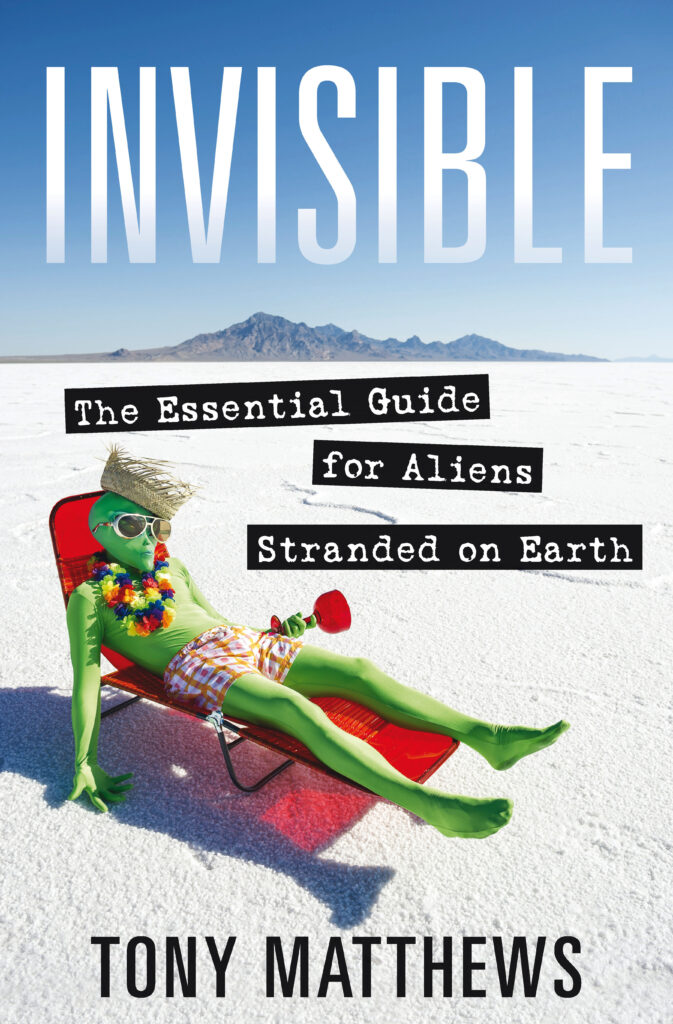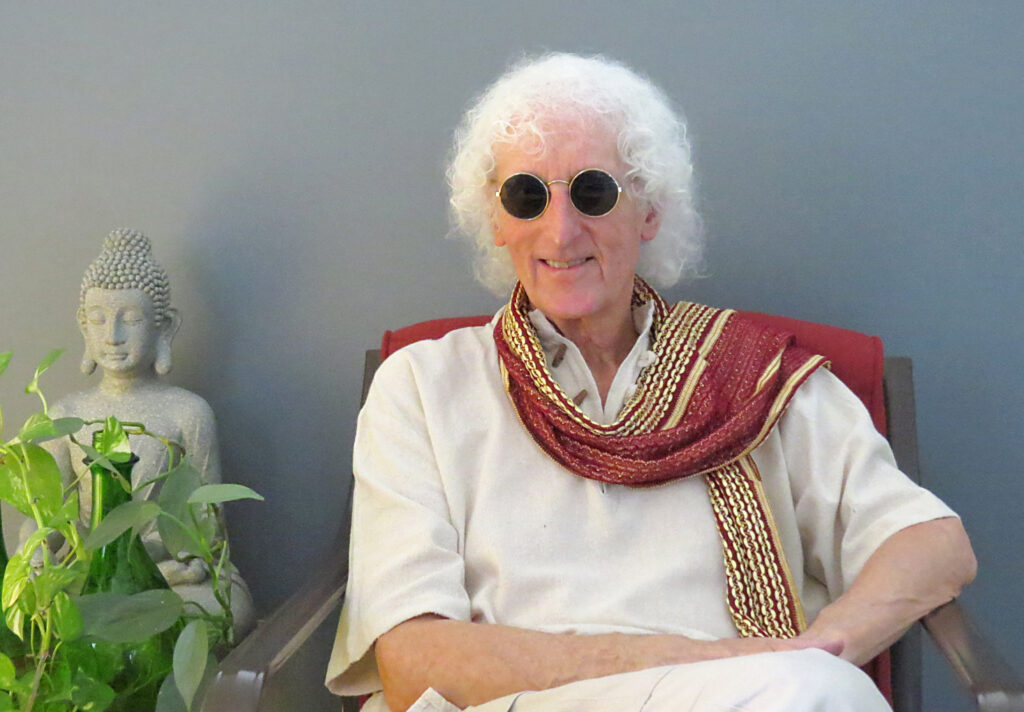

Are there any books or authors that inspired you to become a writer?
As a boy I loved the works of Dylan Thomas. We came from the same city, Swansea, in South Wales. In fact I was educated at a school situated right across the road from the house where he had been born. I just loved the lyricism of both his poetry and prose. I especially loved the hugely colourful and wacky characters in his classic story, Under Milk Wood. Additionally, his haunting poem And Death Shall Have No Dominion, seemed somehow impossibly perfect and poignant. I knew that if I could write like that I would have found my place in the world.
Have you ever killed off a character your readers loved?
I think that authors always have to be ready to sacrifice much-loved characters and I’ve certainly been guilty of that. I once told a tourist operator in a small Queensland country town that I was thinking of putting up fake gravestones in my garden with the names of all the characters who have died in my books. She was so excited she said that if I did that she could guarantee busloads of tourists. Crazy or not, I guess it would be a unique way to sell books!
I understand that in this, your latest book, ‘Invisible’, you used a rather strange method to write it. Can you tell us about that and why the book was written?
I wanted to write this book to assist with people’s understanding of why some of us are introverted, and vegan, and how we manage our lives when almost everyone else in the world seems to be partying continuously and clustering like paperclips to a magnet. The book was penned using my ‘wobbly-knobbly’ system. In other words it was written entirely in my spare time, at night, when dressed in my pyjamas, seated on a wobbly chair with a laptop perched on my knobbly knees! By the time I’d written over a hundred thousand words my bum, was getting a bit stiff and my knees were wobbling around like Chubby Checker’s.
Was it difficult for you, as a reclusive introvert, to tell the story about your own private life and the inherent reclusiveness and introversion that have been part of your persona since childhood?
When I was a kid, about as tall as a gopher in a golf-hole, I’d regularly hide in a cupboard under the stairs and pretend that I was the sole survivor left on Earth after a zombie apocalypse. I couldn’t help it. I just liked to be alone. I was drawn to seclusion like a mouse is drawn to cheese-sticks. It’s always been a part of who I am. I wanted to write about that in a frank and honest way but also humorously because I knew that there were loads of introverts and recluses out there who still feel that they are a bit strange because they are so different. Not only did I want to use my words to try to broaden our understanding of what it’s like to live as an introvert in a world that likes to ‘party’ excessively, but I also wanted to let all the introverts know that there is absolutely nothing wrong with wearing odd socks all your life or madly running to the left while everyone else is running to the right. It’s okay to be different. I was a little apprehensive about writing of my private life but realised that if I wanted to ‘connect’ with people on my own level I’d have to expose my inner self to the world.
Your book deals with some heavy subjects — veganism, animal rights, ethics, climate change, introversion and seclusion, but you treat them all lightly. Was that a structural and deliberate literary approach?
Actually I didn’t have any kind of ‘structure’ in mind when I began the book. I should add that the book had its genesis while I was seated in a shopping mall trying to remain camouflaged against a backdrop of potted plants. I saw a few peculiar things that day, especially at the butcher’s counter, and being a lifelong student of human nature I jotted them down on a few scraps of paper.
A few days later I opened my laptop and, using these notes as a base, had soon written almost half a chapter, and as the scenes I’d witness had been funny, it naturally followed that the chapter would also be humorous. I found that I was able to use satirical humour to lighten the mood when presenting some fairly serious stuff, and thought that would be far more effective than trying to get my message and story across in a more sombre and fact-filled way. I believe that if you can make people smile or laugh, you’ve also made a friend, and I like to think of all my readers as friends.
As a child you’d spend some of your summer holidays living in a cave in the wilds which, tens of thousands of years ago, had been the home of Neolithic people. Why did you do that?
It was a special place for me. I’d discovered the fossil of a pterodactyl there. I’d had to crawl through a narrow tunnel to find it and the whole experience had been completely mind-boggling because I was fairly sure that I was the first person to see that pterodactyl since Raquel Welch had been there one million years B.C. — dressed in her iconic doe-skin bikini, of course. It was pretty irresistible — the pterodactyl I mean, not Rachel’s bikini, although I have to admit that was really interesting too!
Did people think that you were a little strange or in any way different when you were a child?
Probably, although I can’t say for sure because I didn’t have a lot to do with people generally. If I wasn’t hiding in an old disused cinema with the ghosts of Errol Flynn or Fatty Arbuckle, I’d be roaming alone at an old lighthouse on a rocky outcrop and hoping that the tide wouldn’t come in too quickly, leaving me stranded. There would have been nothing worse than being perched like a puffin on a rock-ledge all night, especially in winter, because it would have been colder than a brass toilet in the Kremlin.
In your book you present the theory that being alone, spending a lot of your time in deep thought, might be responsible for some of the startlingly accurate predictions you’ve made in the past. How does that work?
Actually some of the predictions I’ve made have completely astonished me when they came true. I question all this in the book, of course, and believe that it may be associated with my being alone a lot of the time, deep in thought. Quite recently I had a sudden and powerful flash of the face of Anna Karen, the actor who played ‘Olive’ in the TV series On the Buses. I hadn’t thought about her or the program for decades but the vision was so strong it stopped me in my tracks. She died that night and we read about it in the news the following day. I also dreamed of the death of John F. Kennedy’s son and his wife in a flying accident about a week or so before it happened. I’ve had loads of predictions like that, and no, I can’t give you the winning lottery ticket numbers for next week.
What advice can you give to people who, like you, lead reclusive, introverted lives?
Well, people who are naturally introverted, and especially those who are vegan and reclusive like me, have probably been on the receiving end of ‘advice’ all their lives and I expect they don’t need any more from me. My book, however, outlines how I have dealt with being an introverted reclusive vegan and animal rights campaigner, and I hope that in discussing my experiences so openly, I’ll be giving others the confidence and strength to continue their own introverted and reclusive lifestyles without having to feel guilt or remorse or any other kind of negative emotion. It’s just okay to be ‘you’ and draw strength from your own individuality and commitment.
I understand that you have always wanted to be virtually invisible — that’s even the title of your book — and as a result you’ve become something of an expert in fading into the background? Tell me about that.
It’s impossible to be invisible but we can be as invisible as possible. I automatically use a whole range of methods to blend into the background — usually very successfully, including my method of keeping meetings as short as possible so that the average introvert can get out of there as quickly as possible, and even how to remain virtually invisible, even when you’re the centre of attention. I do it all the time. It just comes naturally. I’ve even been mistaken for a shop-dummy, which can be a little disconcerting when they’re having an underwear sale, for example.
I explain my crazy methods in my book and they are all effective — some even prevent accidents happening at the most inopportune moment such as having one’s bottom sucked into one of those terrifying aircraft vacuum loos at 30,000 feet which, in addition to being a little irritating, would also be somewhat awkward when the captain suddenly announces that seat-belts should now been fastened because there’s turbulence ahead.
Invisible — the Essential Guide for Aliens Stranded on Earth has been published by Big Sky Publishing and is available through all major online book retailers in both printed and e-book form.
Author’s website: https://drtonymatthews.weebly.com
Twitter: @tonytheauthor